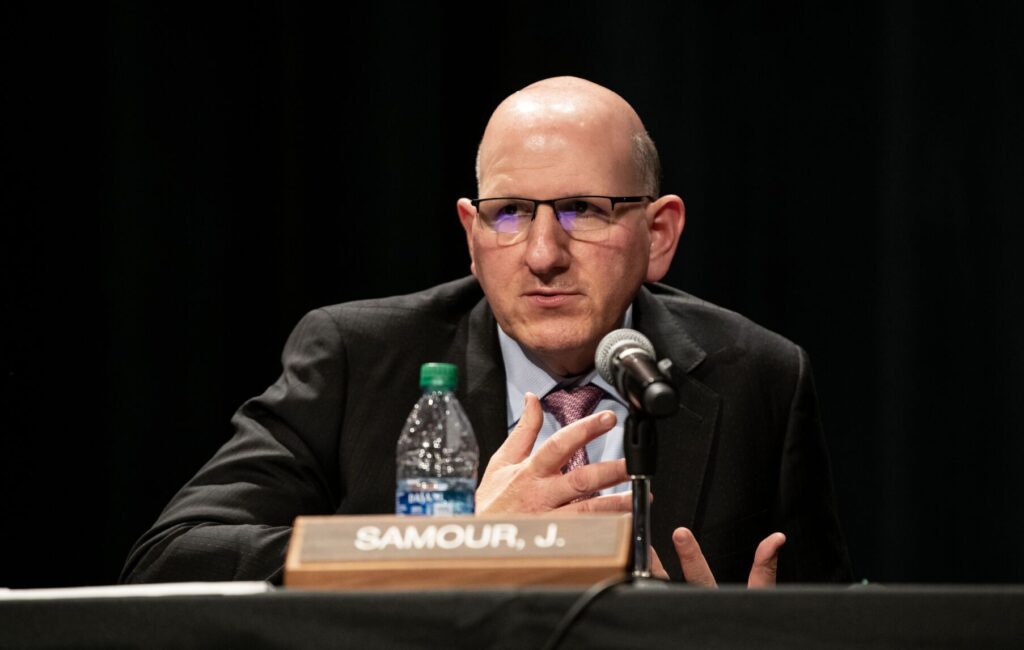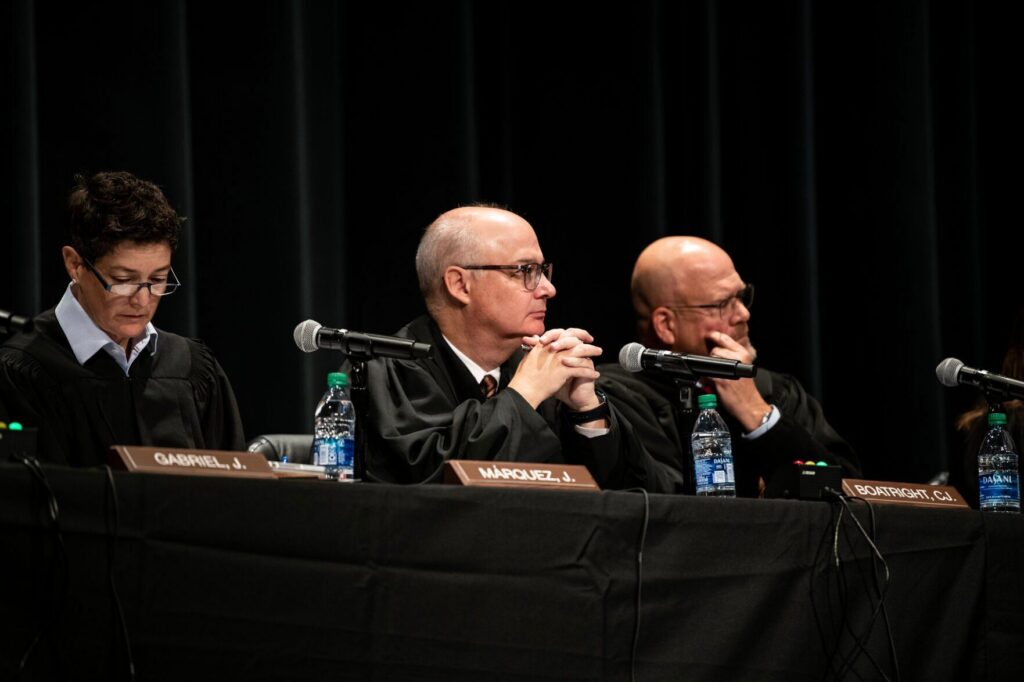2021 transportation bill did not violate TABOR, appeals court rules
Colorado’s second-highest court rejected a legal challenge on Thursday to a major piece of a 2021 law that created new funding sources for the state’s transportation system.
Americans for Prosperity, a conservative Virginia-based advocacy group with a chapter in Colorado, sought to strike down Senate Bill 260 and block various government-owned business from collecting fees until voters could give their approval in a statewide general election.
A three-judge panel for the Court of Appeals noted voter approval was only necessary if the fee-collecting entities, known as enterprises, were created simultaneously, were projected to collect more than $100 million combined in their first five years and served largely the same purpose. Although the enterprises all related to the same subject — the “sustainability of Colorado’s transportation system” — the panel concluded their purposes were different.
“Because it is undisputed that the enterprises at issue here were created for different purposes and no enterprise individually had a projected five-year revenue exceeding $100 million, the General Assembly was not required to seek voter approval before establishing them,” wrote Judge Matthew D. Grove in the May 1 opinion.
The litigation encompassed multiple issues unique to Colorado’s structure of taxation and spending.
First, the Taxpayer’s Bill of Rights, enacted in 1992, requires voter approval for tax increases and imposes caps on state spending pursuant to a formula. From those limitations, TABOR exempts enterprises, which are government-owned businesses that receive less than 10% of revenue from state and local government.
In 2005, voters approved Referendum C, which had the effect of increasing the spending cap.
Finally, in 2020, voters approved Proposition 117, which sought to address the “loophole” by which fees could be imposed or increased via enterprises without TABOR’s constraints. In part, Prop 117 required voter approval for enterprises projected to receive more than $100 million in revenue in their first five years — or for multiple enterprises created at around the same time with primarily the same purpose.
SB 260, which triggered the lawsuit, was a multibillion-dollar transportation funding measure that created four new enterprises and expanded a fifth. The enterprises supported adoption of electric vehicles, electrification of rideshare and delivery fleets, traffic-reduction projects, and bridge and tunnel safety. The legislative summary acknowledged Prop 117, but indicated each enterprise would take in less than $100 million in its first five years, with no mention of aggregating the amounts.
The plaintiffs — which included Americans for Prosperity, Logan County Commissioner Jerry Sonnenberg and Prop 117’s drafter, Michael Fields — sued. They alleged the transportation bill violated Prop 117 because the enterprises took in more than $100 million combined, served primarily the same purpose and were never approved by voters. Alternatively, if the enterprises were not serving the same purpose, they would violate the separate constitutional requirement that bills pertain to a single subject.
In April 2024, Denver District Court Judge Andrew J. Luxen ended the case in the government’s favor. He found the five enterprises had different primary purposes; thus, the aggregation and voter approval requirements did not apply.
He also rejected the plaintiffs’ other claim of impropriety — that the legislature voluntarily reduced spending from the Referendum C ceiling in 2017 but used SB 260 to restore expenditures to their previous level without the popular vote TABOR requires.
Turning to the Court of Appeals, the plaintiffs maintained there was a compelling reason to challenge the legislature’s establishment of multiple enterprises at once.
“You don’t want the government to be able to go out and create a whole bunch of different enterprises and end up with a huge tax increase that violates the purposes of TABOR to reasonably restrain the government,” attorney Charles W. Hatfield told the appellate panel at oral arguments.
But the panel disagreed that SB 260’s treatment of enterprises was problematic. Because the enterprises addressed the same subject, but served different purposes, their revenues did not need to be aggregated. Therefore, there was not an obligation for voters to approve their creation, Grove wrote.
Moreover, the panel rejected the idea that the legislature’s voluntary spending reduction below the Referendum C cap meant it could not, at some point, restore spending to levels voters authorized with the 2005 measure.
To say the legislature’s actions violated TABOR would create “a ‘use-it-or-lose-it’ principle encouraging the state to spend money even when it is not needed,” wrote Grove. “Indeed, imposing such consequences would discourage precisely the type of fiscal prudence that led the General Assembly to voluntarily reduce the cap in the first place.”
The case is Americans for Prosperity v. State of Colorado et al.













